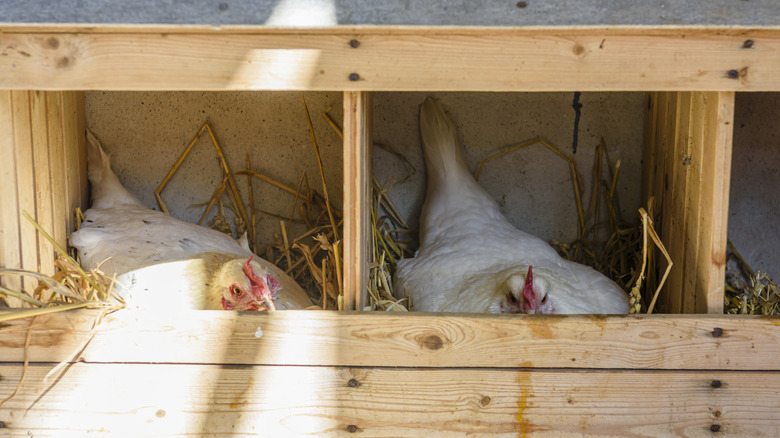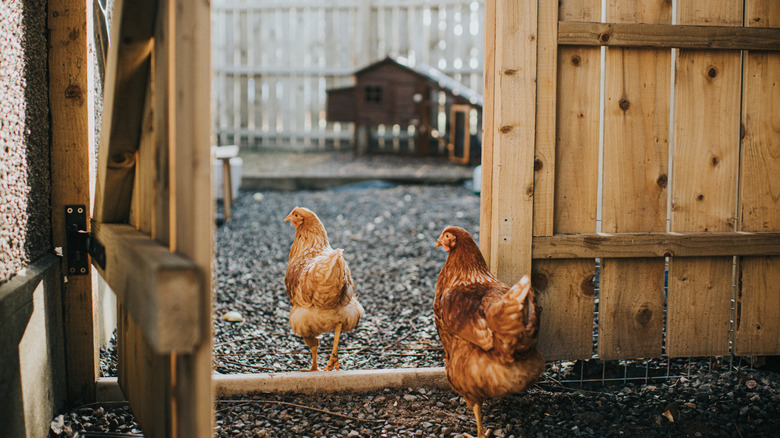How Many Chicken Nesting Boxes Do You Really Need For Your Backyard Coop?
Raising chickens in your backyard has become a trend not just for aspiring farmers, but for anyone wanting to be even a little self-sufficient. There's also something meditative about watching hens roam and peck. It doesn't hurt that you'll enjoy the added perk of having fresh eggs right at your fingertips. This means no more last-minute trips to the store for breakfast essentials or baking projects!
But while chickens can bring plenty of convenience, diving into poultry care without preparation can quickly make things stressful. Even if you follow tips on how to build the best chicken coop, you can't just toss feed and hope for the best. Understanding what you need to know before getting backyard chickens is crucial. This includes creating a comfortable and functional environment for your chickens. One key element is ensuring they have adequate nesting boxes, an essential for hens to lay eggs safely and comfortably.
Typically lined with soft bedding, these boxes mimic the secluded spaces hens naturally seek out in the wild. But how many nesting boxes should you provide for your flock? That's where proper planning comes in. The ideal scenario is to have one nesting box for every four hens. This can be stretched to one box for every six hens but only under ideal conditions. You want your hens to have access to a small and enclosed space designed for them to lay their eggs while feeling secure.
Why you need one nesting box for every four hens
Providing at least one nesting box for every four hens is a sweet spot that balances practicality and the natural behavior of your birds. Since hens typically don't lay eggs all at the same time, a well-planned rotation can keep your flock comfortable even with a shared nesting space. Overcrowding nesting boxes, however, can lead to stress among your hens, which can then reduce their egg production. Happy hens lay more eggs, so making sure that their nesting boxes are not overcrowded is a significant part of that equation.
It is also important to consider the size and breed of your hens. Remember that larger breeds may require more space per hen, so you may need additional or larger boxes to accommodate their needs. Cramped conditions can lead to squabbles and broken eggs, which are situations that are best avoided. Smaller breeds, meanwhile, are comfortable with having smaller boxes but still spacious enough to move around.
An overcrowded coop doesn't just affect your hens' mood. It can also affect the cleanliness of your nesting boxes. Too many vying for the same box increases the likelihood of broken egg messes and a build-up of waste. This can, in turn, spread bacteria and compromise the quality of your produce. So prioritizing an appropriate number of nesting boxes helps maintain order and cleanliness in your coop so that your eggs stay fresh and your hens remain healthy.
How to care for nesting boxes in your backyard coop
Knowing how much it costs to add a chicken coop to your home plus having the right number of nesting boxes are only part of the equation when it comes to being successful. Proper care and maintenance are equally essential. You can start by regularly replacing the bedding and removing any soiled materials from the nesting boxes. This should be done to prevent the spread of disease and discourage pests from invading your coop.
It's also best to position your nesting boxes at a comfortable height off the ground. Elevated boxes, after all, are less accessible to predators and prevent your hens from tracking dirt or droppings into the laying area. Make sure that the boxes are easily accessible to your hens but not so exposed that they lose their sense of privacy. Another tip is to regularly inspect the nesting boxes for damage. Keeping them in good condition ensures they remain safe and inviting for your hens.
Knowing these tips is important because understanding your hens' needs is the foundation of a successful backyard coop. By providing the right number of nesting boxes and maintaining them properly, you'll create a stress-free environment for your chickens that could lead them to lay healthy eggs consistently and comfortably. So plan wisely to make your coop a source of fresh eggs and a haven for your feathered companions!


